Focused Ultrasound for Essential Tremor & Tremor-Dominant Parkinson’s Disease
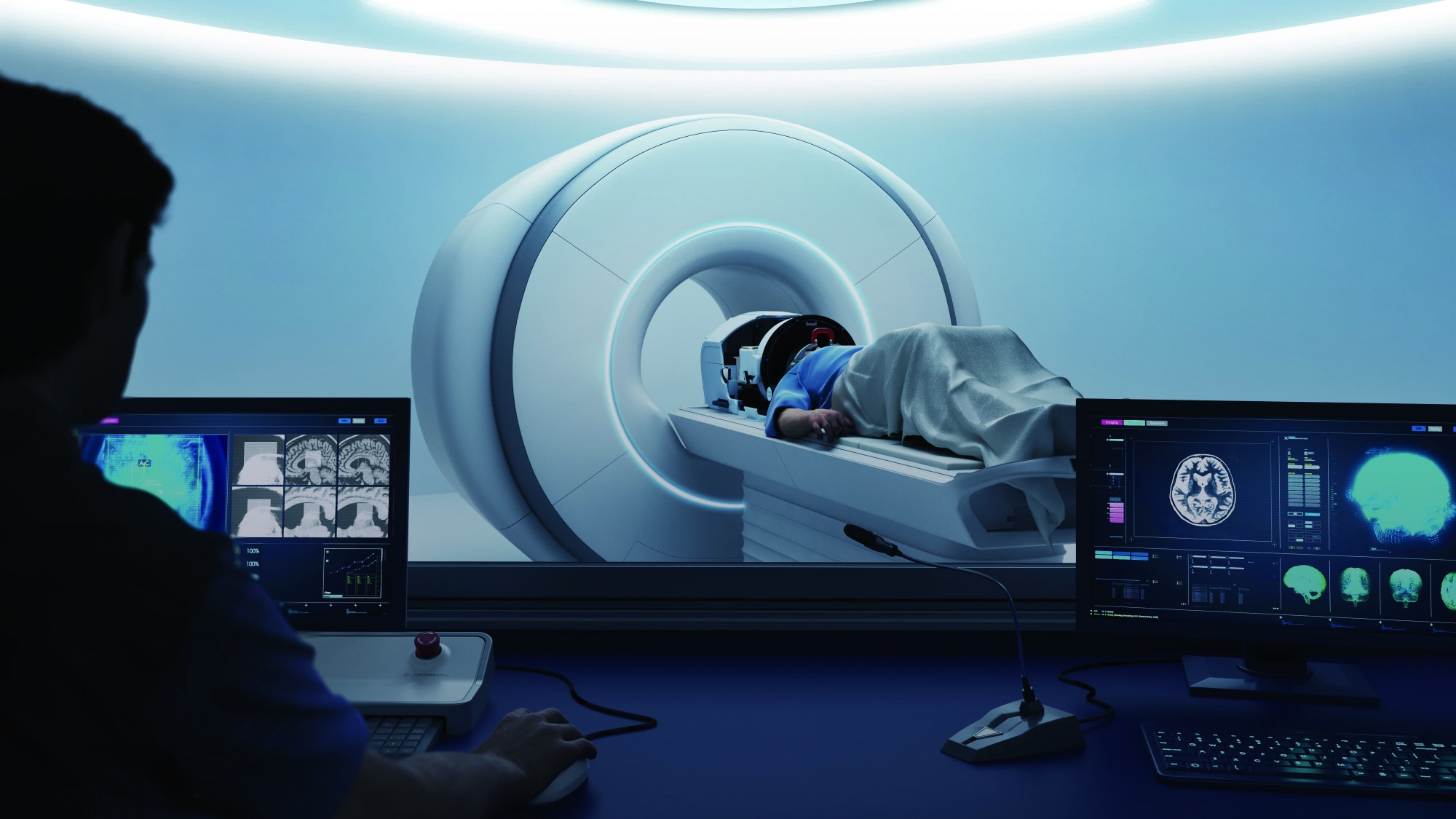
Incisionless outpatient procedure
Focused Ultrasound is an incisionless, anesthesia free treatment option for those living with essential tremor or tremor dominant Parkinson’s disease. With no incisions or implants, this safe and effective procedure uses thermal ablation under MR guidance to immediately improve tremor, quality of life, and functional disability. This innovative treatment is now available at Hoag, offering specialized and comprehensive care right here in Orange County.
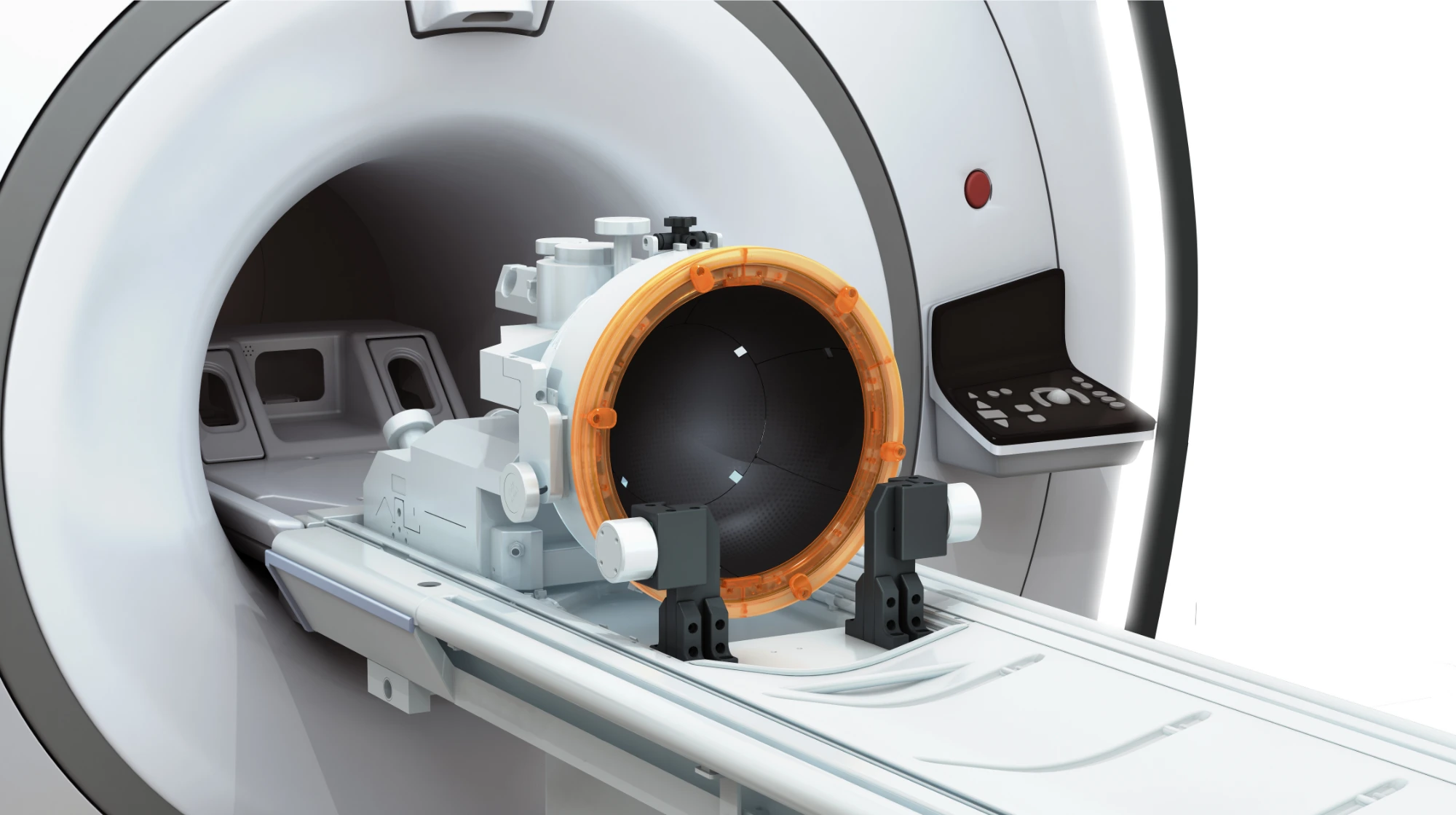
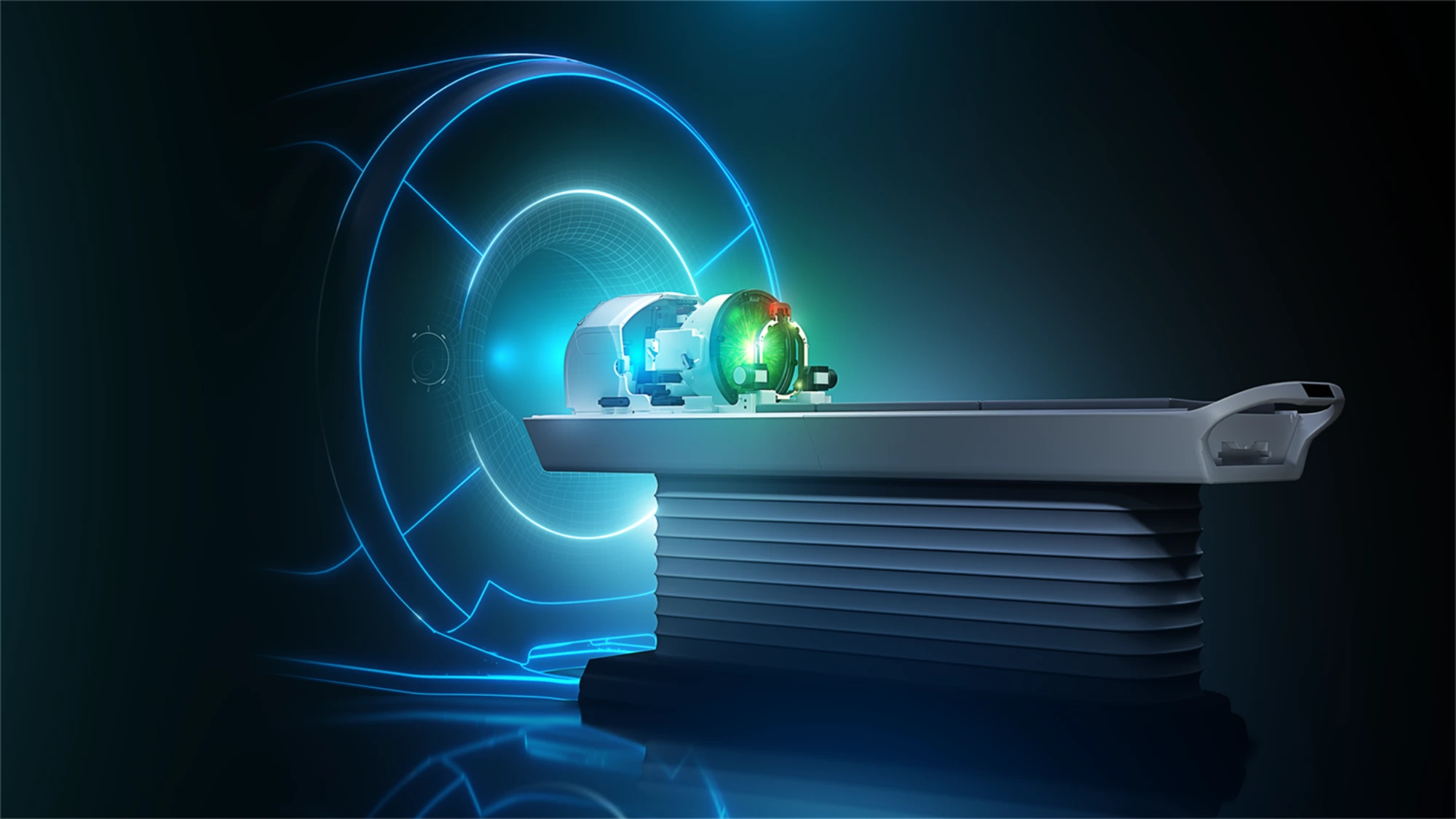
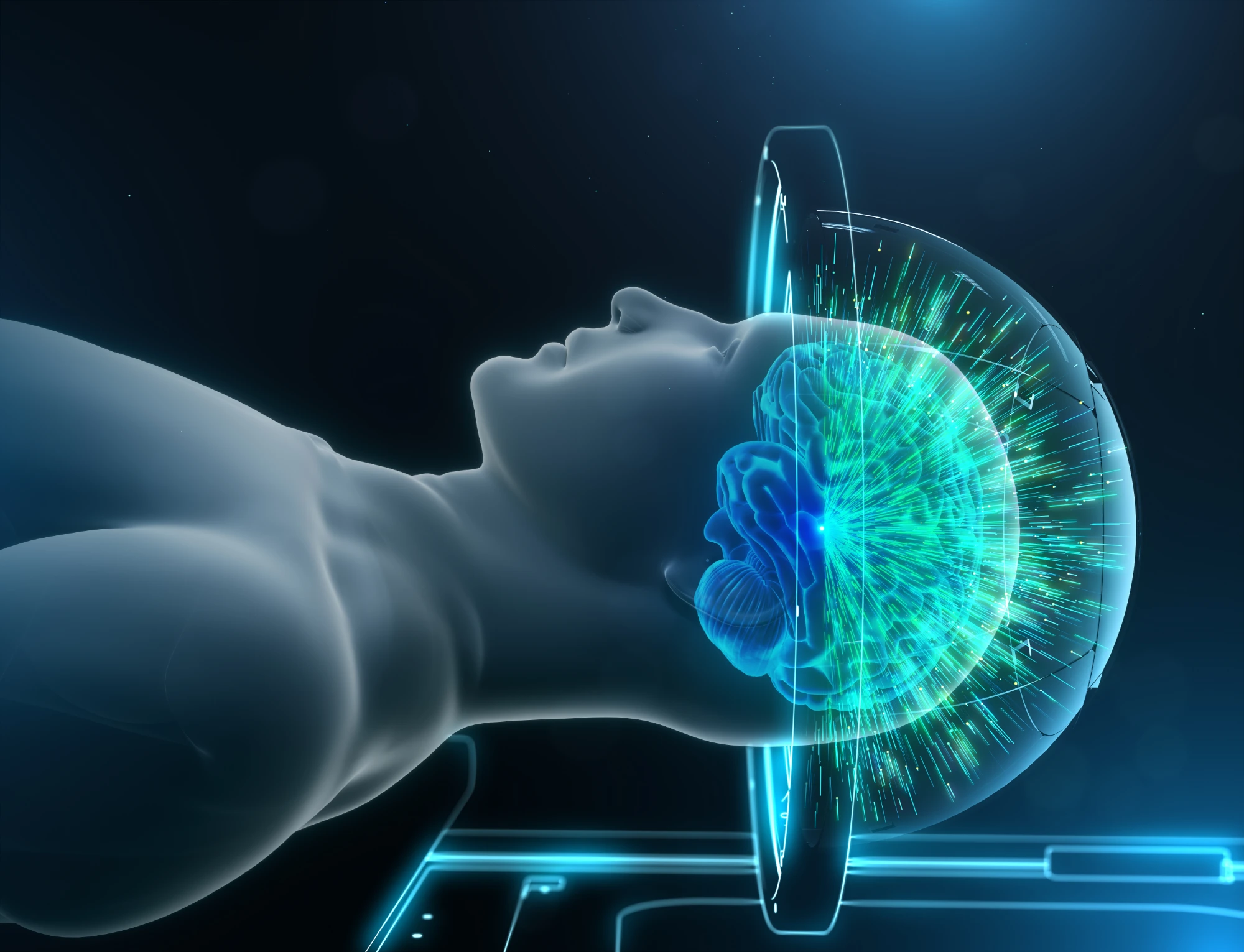
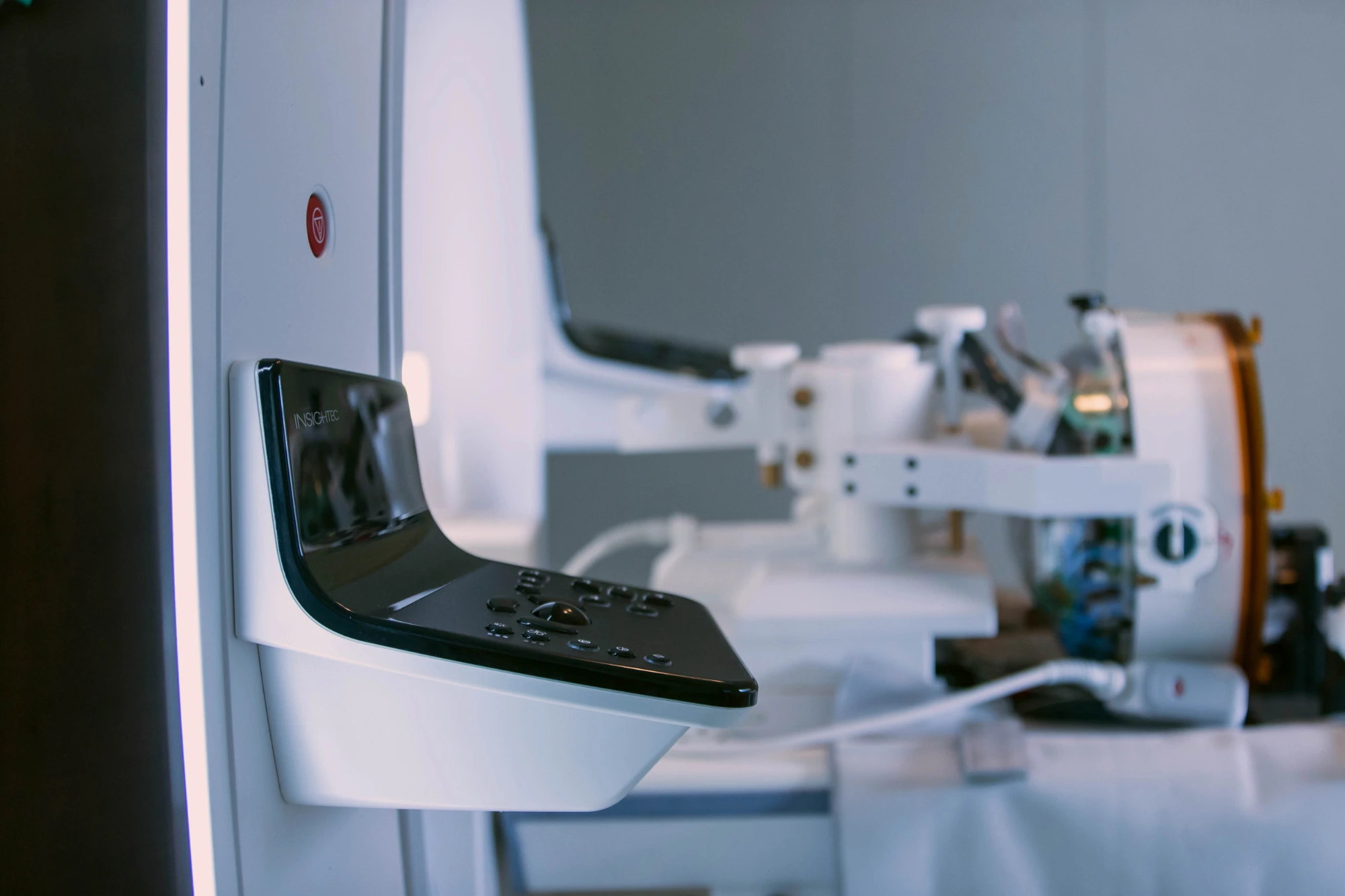
About Focused Ultrasound
Focused Ultrasound (FUS) is an incisionless and safe treatment for people with medication refractory Essential Tremor or tremor dominant Parkinson’s disease (TDPD) where it is offered for unilateral tremor treatment. Focused ultrasound uses sound waves under the guidance of MR imaging, to create lesions in the brain to stop tremor. The sound waves are focused on a cluster of cells in the brain, for example the VENTRALIS Intermediate Nuceus (VIM) for patients with Essential Tremor. The temperature at the target rises high enough to create a small ablation or burn, interrupting the electrical circuits that cause tremor and providing a therapeutic effect.
FUS is FDA approved to treat bilateral Essential Tremor, with 9 months between each procedure. It is FDA approved to treat unilateral TDPD.

Benefits of Focused Ultrasound
Tremor Improvement
For essential tremor and tremor-dominant Parkinson’s Disease, significant and immediate improvement in symptoms.
Quick Recovery
With no surgical cuts, there is minimal to no risk of infection. The treatment is often performed on an outpatient basis and you can expect to resume normal activities within days
Incisionless
Focused ultrasound allows sound waves to pass safely through the skull with no incisions
Safe and Effective
FDA-approved treatment option
Anesthesia Free
No anesthesia is needed. Those undergoing treatment are interactive during the procedure

What to Expect
Pre-Treatment
After consultation with your neurologist or a treating neurosurgeon you will need to undergo a separate evaluation of your tremor. A CT scan of your brain is needed to determine if focused ultrasound is right for you. Sometimes the doctor performing the treatment will also order an MRI.
Preparation
The patient will need to arrive with a freshly shaven head in order to ensure there is no interference with the sound waves. A local numbing medication will be applied, as well as a headframe to ensure your head remains still during treatment. Medications are given in the event of nausea or headache .
During Treatment
The procedure takes place in an outpatient MRI, and typically lasts between 2-3 hours. No anesthesia or sedation is required, and patients are awake throughout the procedure to ensure immediate feedback and tremor assessment A series of MRI images are taken to plan according to your specific anatomy. The treating neurosurgeon will deliver a low dose of ultrasound energy to define the precise spot in the brain for treatment. Between applications of energy, the neurosurgeon may evaluate improvements in your tremor symptoms. Gradually, the energy will increase to create a small lesion to treat the tremors.
After Treatment
The headframe is removed and you will be discharged home. You will need to have a post procedure MRI the next day and follow up with your neurologist.
Why Choose Hoag?
Experience You Can Trust
Our Movement Disorders Program team offers the latest technological innovations to ensure customized and safe treatment options for our patients.
Our neurosurgeons are board certified, with experience in surgical and non-surgical treatment options such as Deep Brain Stimulation Surgery and Focused Ultrasound.
Supportive Care Team
Hoag offers the services of a Nurse Navigator and program coordinator, Nurse Practitioners, social worker services, physical, occupational and speech therapy as well as imaging technology. This interdisciplinary approach ensures an individualized care plan is created for you.
Each team member is focused on providing the best, compassionate care for you and will walk you through every step of the way. Your Nurse Navigator will guide you through the process of FUS treatment and is available should you have any questions.
Meet the Team
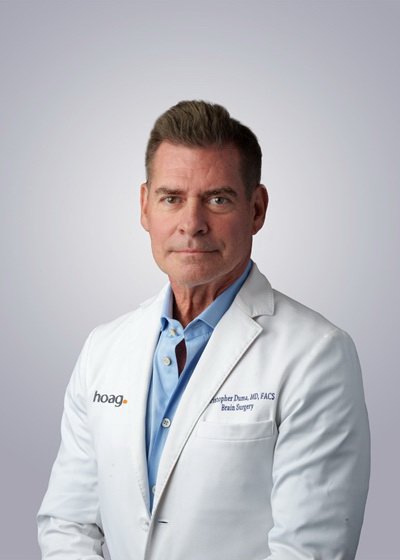
Christopher M. Duma, MD
Dr. Christopher Duma is one of the most experienced neurosurgeon specialists in the field of Gamma Knife radiosurgery and brain tumor surgery. Dr. Duma has been performing Gamma Knife radiosurgery since 1990, and brings to Hoag patients an incredible level of physician expertise. Dr. Duma treats nearly 200 patients per year and because he also performs open, general cranial neurosurgery, he is uniquely equipped to offer an unbiased opinion about the management of any particular problem. In addition to his work with the Gamma Knife, Dr. Duma is involved with research in gene therapy, genetically engineered cells and vaccines to fight malignant brain tumors. He has also been at the forefront of research in immunotherapy for primary brain tumors and the treatment of Parkinson’s disease. Dr. Duma has authored numerous articles, studies and book chapters, and continues to investigate new clinical applications for stereotactic radiosurgery.
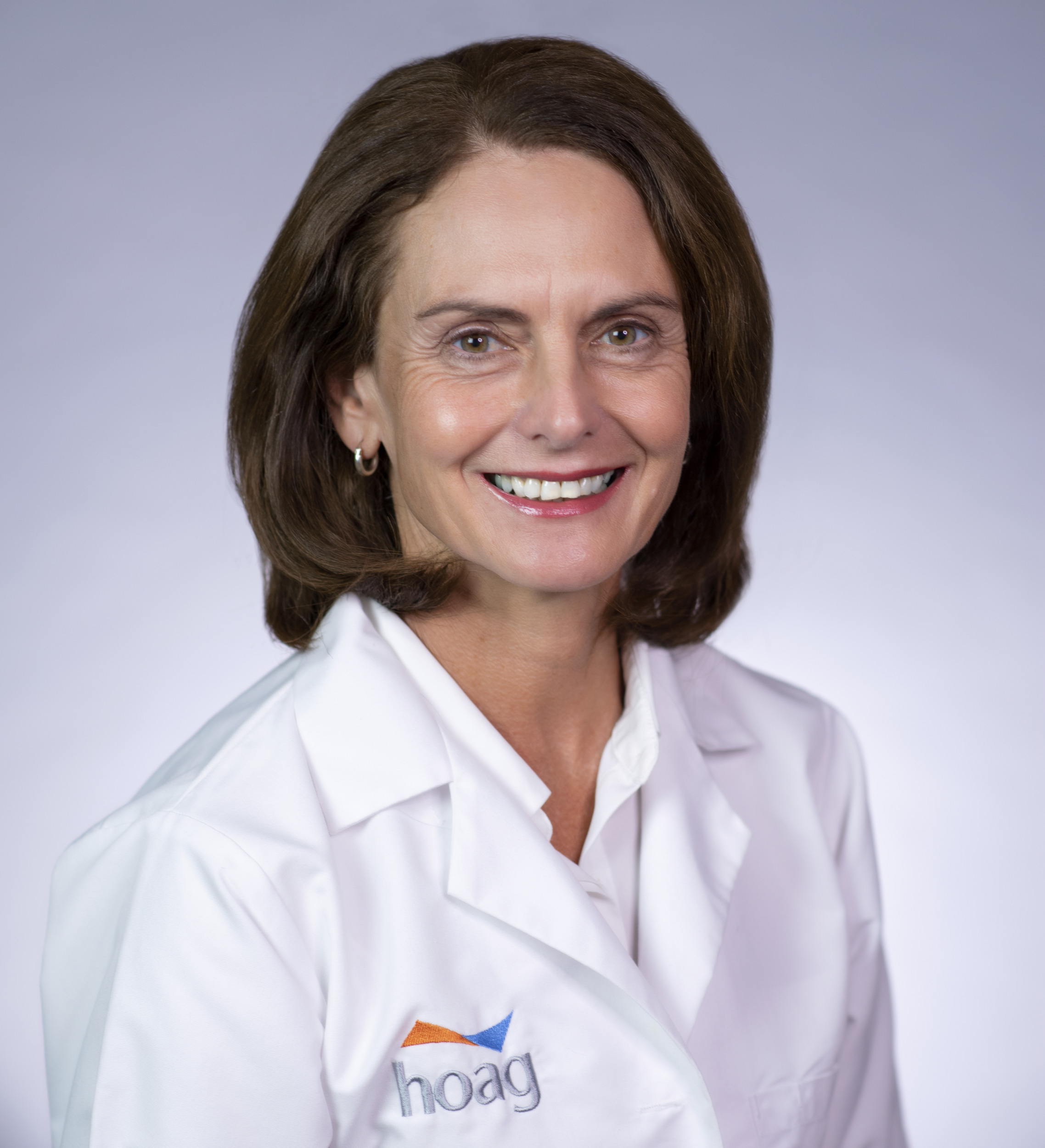
Belinda Stewart-Burger, MSN, RN
Parkinson's & Movement Disorders Nurse Navigator

Sandeep K. Thakkar, DO
Dr. Thakkar earned his doctor of osteopathic medicine degree from Western University of Health Sciences in Pomona, California. He completed his medical internship at Mount Sinai in New York, followed by his neurology residency at Loma Linda University Medical Center in Loma Linda, California. He then did his fellowship training in movement disorders at University of California Los Angeles.<br><br>The primary focus of Dr. Thakkar’s practice is patient-centered care for Parkinson’s disease. He believes in providing academic-level care in a private clinical setting. Dr. Thakkar believes in the importance of creating a global awareness of the disease, and strives to stay current with all modalities of care throughout the movement disorders field, including conditions such as dystonias, chorea, Huntington’s disease, essential tremor, Botulinum toxin therapy, spasticity, and other abnormal involuntary movements.<br><br>Dr. Thakkar works with multiple Parkinson’s disease foundations throughout the area, including the Huntington’s Disease Society of America - Orange County chapter and the International Essential Tremor Foundation. He is also involved with the Parkinson’s Disease Research, Education and Clinical Center (PADRECC) at the United States Department of Veterans Affairs.<br><br>Dr. Thakkar has published numerous journal papers and done clinical research on the subjects of deep brain stimulation for the treatment of and the effects diet can have on Parkinson’s disease, as well as the effects of certain drug therapies on mood and behavior.
